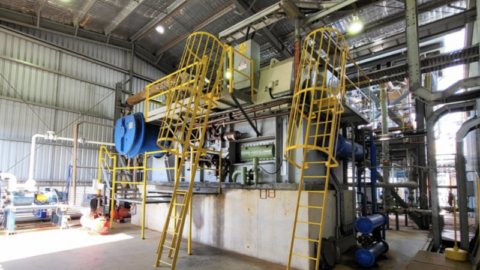Japan, Australia’s largest thermal coal and gas buyer, has announced a switch to renewables ─ with the goal of doubling its renewable energy target for 2030 and halving it’s gas usage, slashing demand for Australian LNG and coal.
The changes were announced by Japan, which currently buys 67 per cent of its thermal coal and 39 per cent of its LNG from Australia, in a draft report from Japan’s Ministry of Economy, Trade and Industry.
The revised figures laid out in the draft plan states that renewables should account for 36-38 percent of power supply in 2030, double the 18 percent level in March 2020.
These changes have created turbulence in the Australian LNG and coal industry ─ especially as the Federal Government has hailed gas as a key part of the country’s COVID-19 recovery and continues to invest in the industry, recently committing $224 million in funding to develop an onshore gas field in the Northern Territory Beetaloo Basin.
Japan’s choice shows a worldwide energy reset, moving away from fossil fuels and turning to renewables, to combat climate change.
Greens Leader, Adam Bandt, said, “This year, about 40 per cent of Australia’s gas and thermal coal exports have gone to Japan.
“This one decision from Japan alone could end close to 20 per cent of Australia’s thermal coal exports within a decade, and with China and Korea also committing to net-zero emissions, the industry could soon collapse.
“These industries could be over by 2030 as our biggest customers accept climate science, but Liberal and Labor are giving communities false hope about coal and gas continuing for decades.”
Mr Bandt said that the Federal Government must massively ramp up investment in manufacturing and green energy in Queensland and NSW to guarantee secure jobs after 2030 and that the Betaloo gas fields in the Northern Territory developments should be halted.
“Opening up new gas fields isn’t just a climate crime, it’s an economic disaster,” Mr Brandt said.
The Australian Petroleum Production and Exploration Association (APPEA) CEO, Andrew McConville, believes that Australia and Japan will continue to have a stable trading relationship, despite recent events.
“Australian LNG is an important part of a cleaner energy future and will still be needed in Japan to power their large manufacturing industry,” Mr McConville said.
“Already Australian LNG producers such as Woodside are working with the Japanese on a future Hydrogen industry.
“Natural gas with CCS is a pathway to a large-scale clean hydrogen industry.”
Mr McConville stated that a recent International Energy Agency (IEA) report said the demand for natural gas in Asia will grow by 52 per cent by 2040, as demand continues to grow in major economies such as India and China.
“The International Energy Agency found that between 2010 and 2018 that coal-to-gas switching has saved around 500 million tonnes of CO2 – an effect equivalent to putting an extra 200 million EVs running on zero-carbon electricity on the road over the same period,” Mr McConville said.
Dr Madeline Taylor, Climate Councillor and energy expert, opposed Mr McConville’s views, stating that, “Japan is one of Australia’s biggest export markets for LNG. This development could undermine the Federal government’s support for new gas earmarked for export.
“The government has allocated tens of millions of dollars into opening up new gas basins like the Beetaloo basin in the NT and the Bowen and Galilee basins in Queensland, but it’s not clear this spending is necessary, given the growing uncertainty around having buyers for this gas.
“This creates economic risks for Australian LNG exports, which represent up to 82 percent of Australian gas production.”
Ms Taylor added that Australia could be generating and exporting renewable energy to meet rising global demand.
“The government must accelerate progress towards a renewables-powered economy instead,” Ms Taylor said.
















